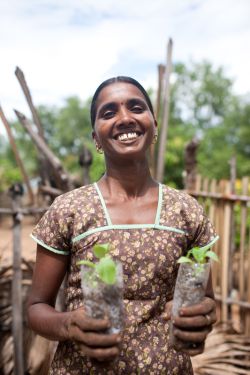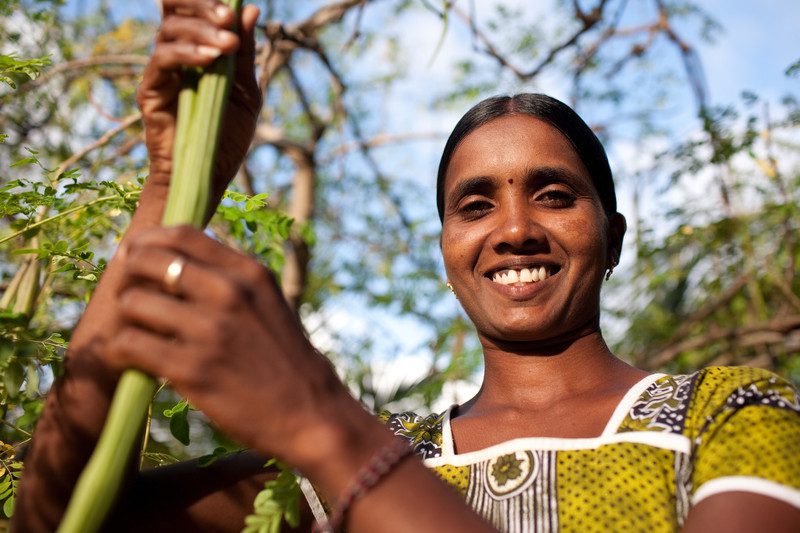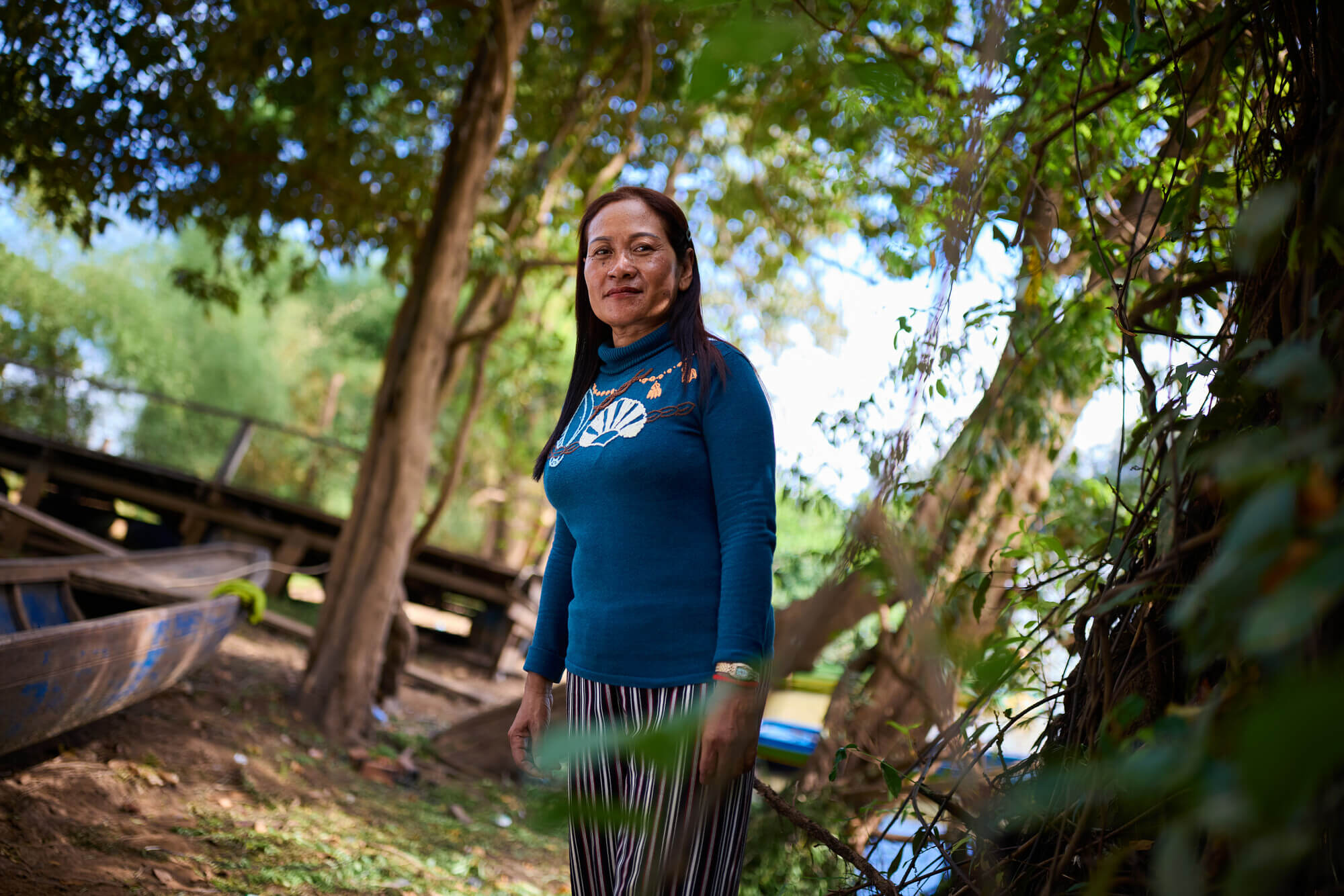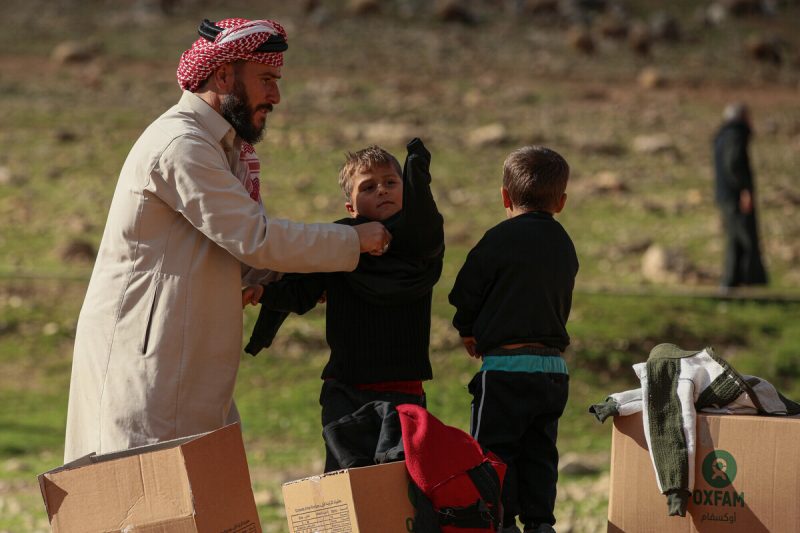In the latest instalment of our ‘Stopping Hunger in Sri Lanka’ interview series, we head east to Vaharai, a Tamil village that is still recovering from years of conflict and still rebuilding after the devastating Boxing Day tsunami. Local organisation KPNDU has been running a home gardening program here with Oxfam’s support for five years.
KPNDU invited 32-year-old Indrani Nallathambi and her mother to take part in home gardening training after identifying them as being among the village’s poorest residents.
Interviewing Indrani in the neat, cement two-room house she shares with her mother, Oxfam’s Marian Reid was treated to an amazing account of hardship, hunger, hard work and, ultimately, transformation.
This is part one of Indrani’s story.
How did the tsunami affect you?
On the tsunami day, my mother went near the beach to pick coconuts, leaving us on the land. I saw people running, saying the sea was coming. And they asked us to run. But I couldn’t run because my mother had gone to get coconuts. After that, I saw some people being devoured by the sea. So I witnessed it.
My mother was carried by water. People thought she was dead. But she was able to save her life by clinging onto a log.
After that, we went and lived in a camp. I was not used to that. But … with the help of an organisation called HELP, we moved here and they built this house. I lost all my belongings, my crops, my chickens. Everything, as a result of the tsunami.

Before joining the home garden program, did you experience food shortages?
After the tsunami, food, clothes and even drinking water were a problem for us … We could not even buy the basics. But now I have money, I can buy clothes and other things. And I can use what I grow in my home garden for cooking.
Were you growing food before you started the program?
Before, we were doing home gardening, but we could not use proper fertiliser — we just used cow dung and other base materials like manure. But now we know how to produce compost fertiliser in a systematic way.
What food did you eat?
We used to purchase rice and vegetables from shops but these were not fresh products.
How did you afford that food?
My mother was engaged in some cottage industry, so she earned a living. So we used that money and bought our necessities … It was not enough.
After you started working with Oxfam and KPNDU, what training and support did you receive?
They provided us with training on home gardening, and healthy living practices. They taught us it is not just digging and planting the crop — you should use compost fertiliser too. And they taught us how to create compost fertiliser.
What differences have you noticed since using this technique?
Now we eat fresh vegetables without any chemical fertiliser. We give the fresh vegetables to our village people, and our living conditions have improved.
What kind of vegetables do you grow now?
Bitter gourd, okra, green chillies and drumsticks (moringa – a type of vegetable). I have been doing this home gardening for the last three years.
Are you now producing enough vegetables to sell?
I am able to sell vegetables now, but I still want to … sell more to the village people.
Are you experiencing changing weather patterns?
The amount of rain has increased. So it destroys crops … when this happens we take the plants and put them in a bag and keep them. And after the rain we replant.
Next time: From vegetable gardening and the finer points of compost mixing, to chicken breeding and sharing her knowledge with others, Indrani tells us what her life is like now.
Find out more
Learn more about how we’re fighting hunger in Sri Lanka
By donating to our Stop Hunger Appeal, you’ll be helping more women like Indrani to grow their way out of poverty



